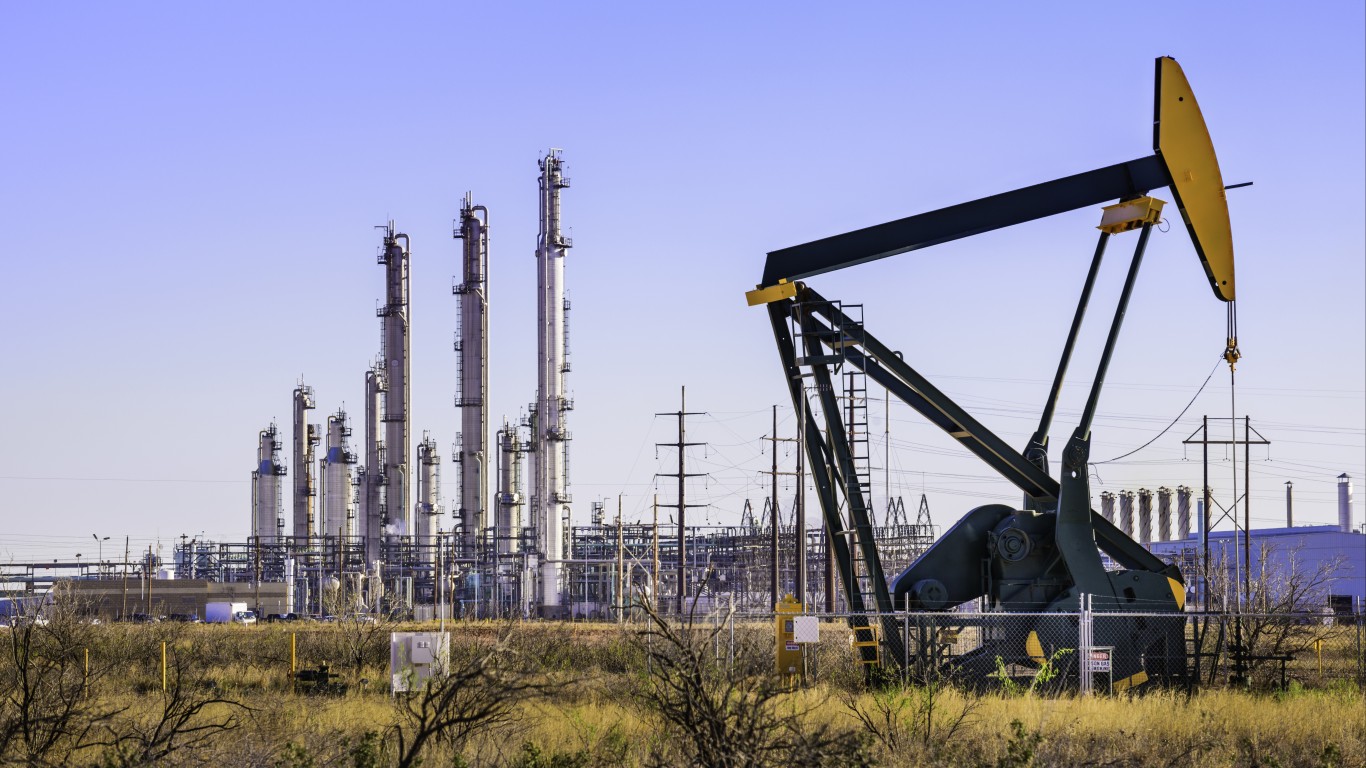
The Federal Reserve Bank of Dallas on Wednesday released its fourth-quarter report on the state of the oil market in the 11th Federal Reserve district. Business activity has picked up significantly and posted a positive index number for the first time since the first quarter of this year. From an index reading of −6.6 in the third quarter, the fourth-quarter index rose to a positive index score of 18.5.
The bank’s data was collected earlier in December from executives at 146 firms in the Dallas Fed’s district. Some 97 respondents came from exploration and production (E&P) companies and 49 from oilfield services firms.
E&P firms expect capital spending to rise in 2021, while oilfield services firms see an improvement but still expect capex to shrink in 2021. The index readings for fourth-quarter employment and wages improved but remain solidly negative.
On average, the executives surveyed expect West Texas Intermediate (WTI) prices of around $50 a barrel by the end of next year. WTI traded at around $48 a barrel early Friday morning. The expected year-end average is $4 a barrel higher than the U.S. Energy Information Administration estimate published in December’s Short-Term Energy Outlook.
By far the most interesting parts of the report are the responses to the bank’s special questions. For example, about 85% of respondents are using a WTI price below $49 a barrel to plan their capex budgets for next year.
Nearly 80% of survey respondents also believe the number of E&P firms in the United States will drop from around 60 currently to fewer than 48 by the end of 2022. That indicates that the wave of mergers in the oil patch that began last summer should continue into next year.
The Dallas Fed also prints comments from respondents. In the fourth-quarter report, one comment on the availability of capital stands out:
Zero-percent money is not creating a healthy industry; it merely means that big financial providers and huge corporations can play games with free money. … “No-cost money” simply enables publicly traded companies to appear successful to investors when in reality they churn money for management and financial groups and leave stockholders short of any real returns.
What this commenter is getting at is the decline in lending to E&P firms based on their reserves. This so-called reserve-based lending was replaced when “financial markets all went berserk and gaga over ‘all things and everything Permian’ or shale.”
Another comment said much the same thing in a different way: “The destruction of investor capital through drilling has seriously impacted the amount of outside capital available for our strategy.” This company does no new drilling but acquires “under-operated properties” and hedges production “heavily.”
WTI prices have dropped from a high of around $63 a barrel in January of 2020 to just shy of $48 on December 31. Respondents to the Dallas Fed’s survey are clearly not expecting much change in the coming year.
The Average American Has No Idea How Much Money You Can Make Today (Sponsor)
The last few years made people forget how much banks and CD’s can pay. Meanwhile, interest rates have spiked and many can afford to pay you much more, but most are keeping yields low and hoping you won’t notice.
But there is good news. To win qualified customers, some accounts are paying almost 10x the national average! That’s an incredible way to keep your money safe and earn more at the same time. Our top pick for high yield savings accounts includes other benefits as well. You can earn up to 3.80% with a Checking & Savings Account today Sign up and get up to $300 with direct deposit. No account fees. FDIC Insured.
Click here to see how much more you could be earning on your savings today. It takes just a few minutes to open an account to make your money work for you.
Our top pick for high yield savings accounts includes other benefits as well. You can earn up to 4.00% with a Checking & Savings Account from Sofi. Sign up and get up to $300 with direct deposit. No account fees. FDIC Insured.
Thank you for reading! Have some feedback for us?
Contact the 24/7 Wall St. editorial team.
 24/7 Wall St.
24/7 Wall St.



